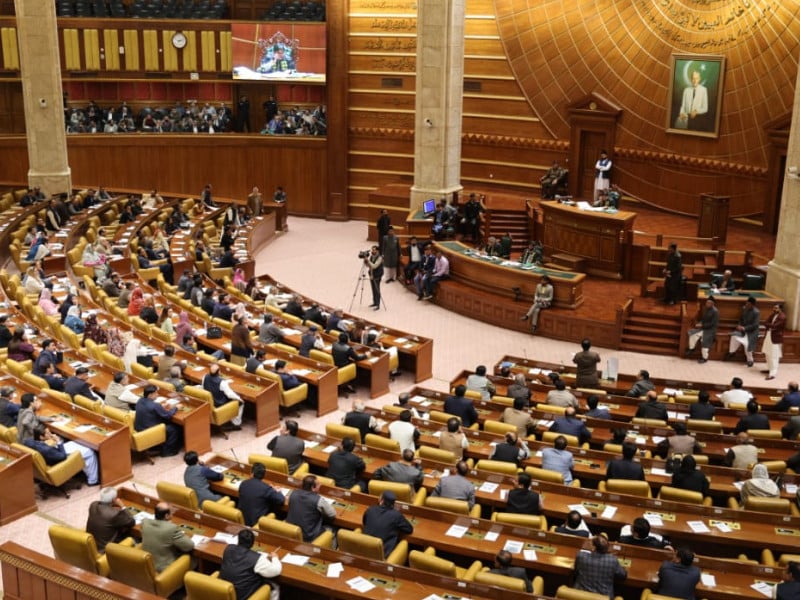
An amendment bill to the Supreme Court Act of 1997 has been presented in the National Assembly. The bill proposes increasing the number of judges in the Supreme Court from 17 to 23.
According to sources, the bill was introduced by government member of the National Assembly, Daniyal Chaudhry. The amendment aims to address the backlog of cases by increasing the number of judges.
The bill states that increasing the number of judges will ensure timely hearings and decisions. It also highlights the need for experts in various fields, including cybercrime, environmental law, and international trade, to make informed decisions.
The amendment proposes that increasing the number of judges will reduce undue pressure on any single judge.
The government did not object to the bill; however, opposition leader Mahmood Khan Achakzai raised concerns about the bill and pointed out a quorum issue in the assembly.
Nonetheless, a count of the members confirmed that the quorum was met.
The Information Minister supported sending the bill to a committee for further processing, and it has been referred to the relevant committee.
Earleir this month, an amendment bill aimed at increasing the number of judges in the Supreme Court of Pakistan was introduced in the Senate by Senator Abdul Qadir during a session chaired by Chairman Yousaf Raza Gillani. The proposed bill seeks to raise the number of Supreme Court judges from 17 to 23.
Senator Qadir argued that the growing backlog of cases is a significant issue, attributing it to the shortage of judges. He highlighted that delays in case scheduling, especially in tax-related cases involving substantial amounts, are forcing the country to seek financial assistance from abroad.
The bill has sparked controversy.
Opposition members expressed concerns that the amendment could be a strategic move by the PML-N government to alter the balance of power within the judiciary.
PTI Senator Ali Zafar criticised the bill, suggesting that it aims to manipulate the judiciary, while Senator Saifullah Abro accused the government of having ulterior motives related to recent Supreme Court decisions.
The timing of the bill is also notable. Chief Justice of Pakistan (CJP) Qazi Faez Isa is set to retire on October 25, and there are reports that the PML-N government desires to extend his tenure for the continuity of the current judicial system.
However, CJP Isa stated he was not interested in a person-specific extension, although he may remain if parliament extends the retirement age for all superior court judges by three years.
Political and legal commentators have expressed skepticism about the bill.
Critics, including senior lawyer Chaudhry Aitzaz Ahsan and JUI-F legal expert Kamran Murtaza, suggest that the increase in judges could be an attempt to influence the Supreme Court’s composition for political gain.
They argued that the primary issues affecting the judiciary were systemic delays and a high volume of cases, rather than the number of judges.

1731916090-0/sabrina-(3)1731916090-0-165x106.webp)


1732020599-0/BeFunky-collage-(73)1732020599-0-165x106.webp)




1724319076-0/Untitled-design-(5)1724319076-0-270x192.webp)









COMMENTS
Comments are moderated and generally will be posted if they are on-topic and not abusive.
For more information, please see our Comments FAQ